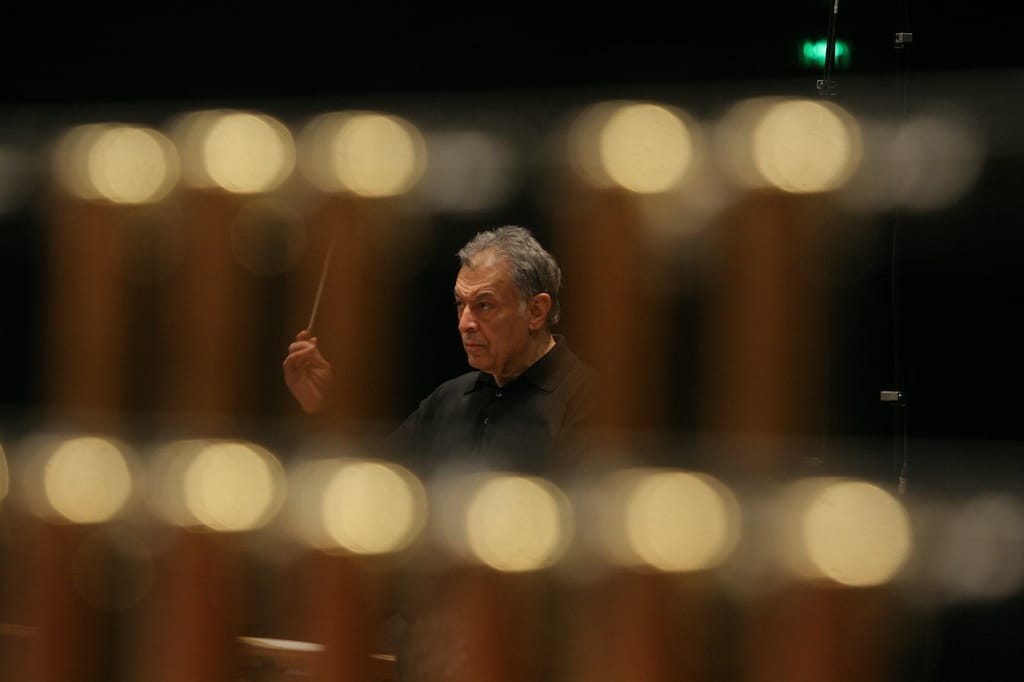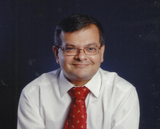Zubin Mehta and the Symphony Orchestra of India: A Historic Union

Almost four decades ago, I experienced live in action India’s greatest living legend, Maestro Zubin Mehta.
17 September 1984, Shanmukhananda Hall Sion in then Bombay. It was the maiden and so far only visit of the New York Philharmonic Orchestra to India. Until then I had only been exposed to music-making in Goa, so hearing the quality of musicianship of one of the finest orchestras on the planet, with Mehta at the height of his powers at their helm, was an exhilarating shock to the system. I had heard recordings of great symphonic music, but the pulsating energy of hearing it all live is quite indescribable. Mehta describes the first time he heard an orchestra in Vienna it was like his “ears had popped open.” I could say the same for my ears that day.
The trip to Bombay just to hear that concert was a sort of reward for my success at the Std XII exam and having gotten into medicine. I still remember the programme: Johann Sebastian Bach’s Concerto for Two Violins in D minor, BWV 1043 before intermission, with concertmaster Glenn Dicterow and Charles Rex as soloists. The bulk of the concert was devoted to Gustav Mahler’s expansively expressive, over seventy minutes-long Fifth Symphony, with its achingly beautiful Adagietto, a musical love-letter. It was my first introduction to Mahler, and for that alone I owe a debt of gratitude to Mehta.
That 1984 visit of the New York Phil to India received unprecedented coverage. Television had arrived in Goa just a couple of years earlier, so we could watch the Doordarshan live relay of the Siri Fort Delhi concert. The highlight for us was the performance of Beethoven’s Third Piano Concerto in C minor, op. 37 by Goan-origin pianist Gavin Martin. Little did I dream then that I would forge a lifelong friendship with him decades later.
From then on, I became a sort of Zubin groupie. I think I’ve been to most of his concerts in Mumbai featuring variously the European Community Youth Orchestra, several visits by the Israel Philharmonic, the Munich Philharmonic, the Australian World Orchestra to name just some of them. I’ve had to make two trips to Bombay/Mumbai, once to get a ticket and another to go to the concert, and once spent the night on the pavement before the box office opened, playing cards, drinking chai and smoking beedis with the drivers and watchmen of the rich folk who were too posh to queue up themselves. Thank God for online bookings today!
During my UK decade (1998-2008), Mehta made five appearances at the BBC Proms festival, with the Bavarian State Orchestra, the Israel and Vienna Philharmonics. I went to them all, swapping duty shifts if needed.
It wasn’t mere national pride that made me his devotee. Mehta burst upon the western classical music world in his early twenties. By age 25 (1961), he had already conducted the Vienna, Berlin and Israel Philharmonic orchestras. That same year he was named assistant conductor of the Los Angeles Philharmonic, becoming not just its youngest conductor but also the only one to ever simultaneously lead two major North American orchestras (he also led the Montreal Symphony). The rest of his jaw-dropping achievements would take up too much space.
But thus far, Mehta had not yet conducted an ‘Indian’ orchestra. This is why, when his appearance with the Symphony Orchestra of India (SOI) was announced last year at Mumbai’s NCPA (National Centre for the Performing Arts), I immediately procured a ticket, sensing history in the making. Those concerts were cancelled due to his ill health, but rescheduled this month. Again, I booked a ticket literally the minute the box office opened.
Now seventeen years old, the SOI has come a long way, with an impressive track record of orchestral repertoire, resident and guest conductors and soloists under its belt.
Its Associate Music Director Zane Dalal, writing for NCPA’s ON stage magazine in the run-up to these concerts, said Mehta’s debut with the SOI remained “elusive” for “a plethora of reasons” but didn’t elaborate further. But to quote someone in the Mumbai press, “it’s never too late.”
I was fortunate to also attend Mehta’s pre-concert morning rehearsal with the SOI. The concert programme was all-Viennese, his musical home-turf: Mozart’s Marriage of Figaro overture, Schubert’s ‘Unfinished’ and Mahler’s First Symphonies.
Mehta’s stick technique is a joy to behold, crisp, articulate, precise. Colin Anderson of ‘The Classical Source’ had written in 2009: “Mehta remains one of the most-complete of conductors – musically, technically, intellectually.” All three attributes were in glorious evidence in 2023 despite his physical frailty at 87.
He conducted rehearsal and concert without a score, even dictating rehearsal cues from memory. Mehta took the second movement of the Schubert at a much brisker pace (Andante co moto, after all!) than the stodgy tempo one usually hears it, and it made perfect sense.
Mehta’s addition of the ‘Blumine’ movement in Mahler’s First was an aural added bonus, again something we rarely hear played. Mahler’s joyous quotation of his song ‘Ging heut’ Morgen über’s Feld’ (I walked this morning across the fields) in the first movement made me want to sing too: “In the gleaming sun, The world at once began to sparkle; All things gained in tone and colour! Isn’t it a lovely world?” The SOI for their part played their hearts out for him.
The antiphonal seating of the violins helped bring out the stereophonic back-and-forth ‘conversation’ between first and second violins.
In Mehta’s autobiography ‘The Score of My Life’, he remembers his Jesuit schooling at St. Mary’s “very positively”, adding that “nobody tried to convert us to Catholicism.”
He reminisced to the press how, after his first conducting experience in 1956 for Hungarian refugees at the Austro-Hungarian border, a Hungarian priest blessed him “That blessing has carried me through all my life.” May it carry him for many more, healthy, music-filled years! Amen.
This article first appeared in Herald Goa.






